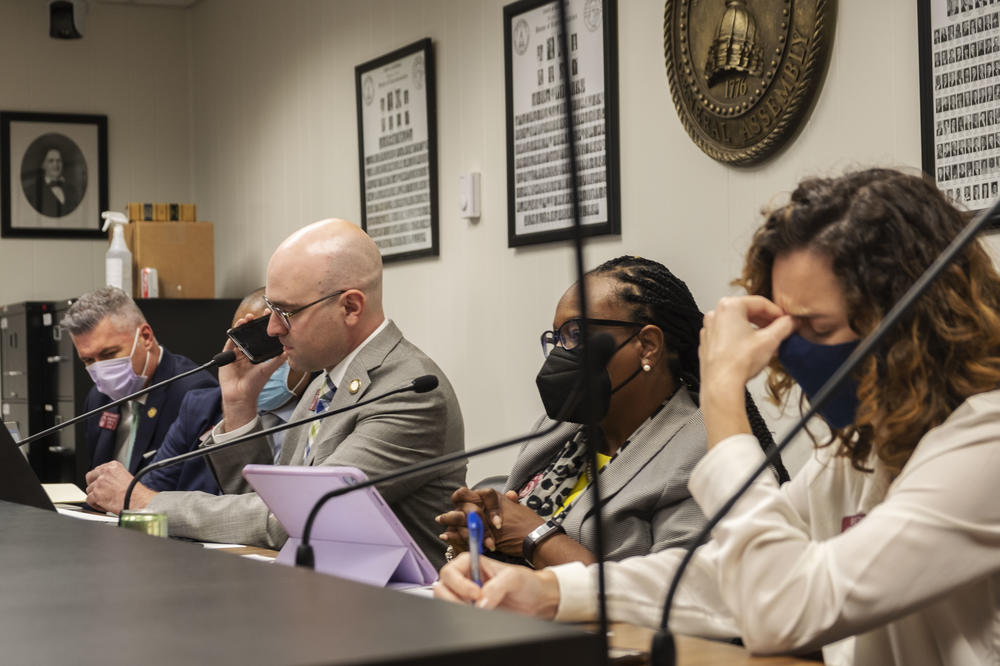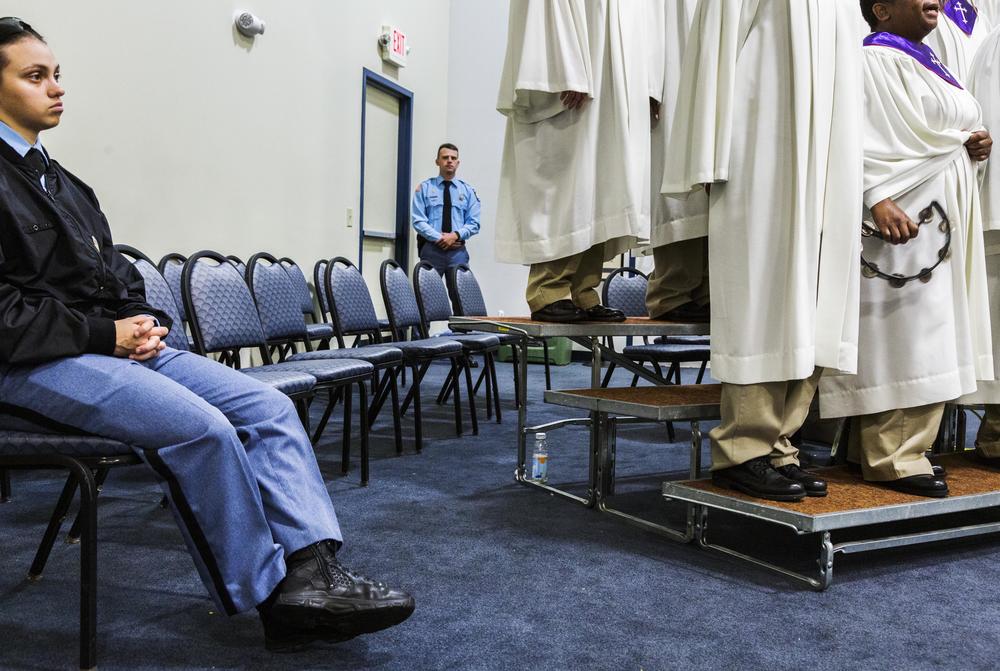
Caption
Georgia State House Member John McLaurin holds his phone to a conference room microphone so fellow members of an ad hoc committee of house members can hear the testimony of a correctional officer at Lee Arrendale State Prison in September 2021.
Credit: Grant Blankenship



